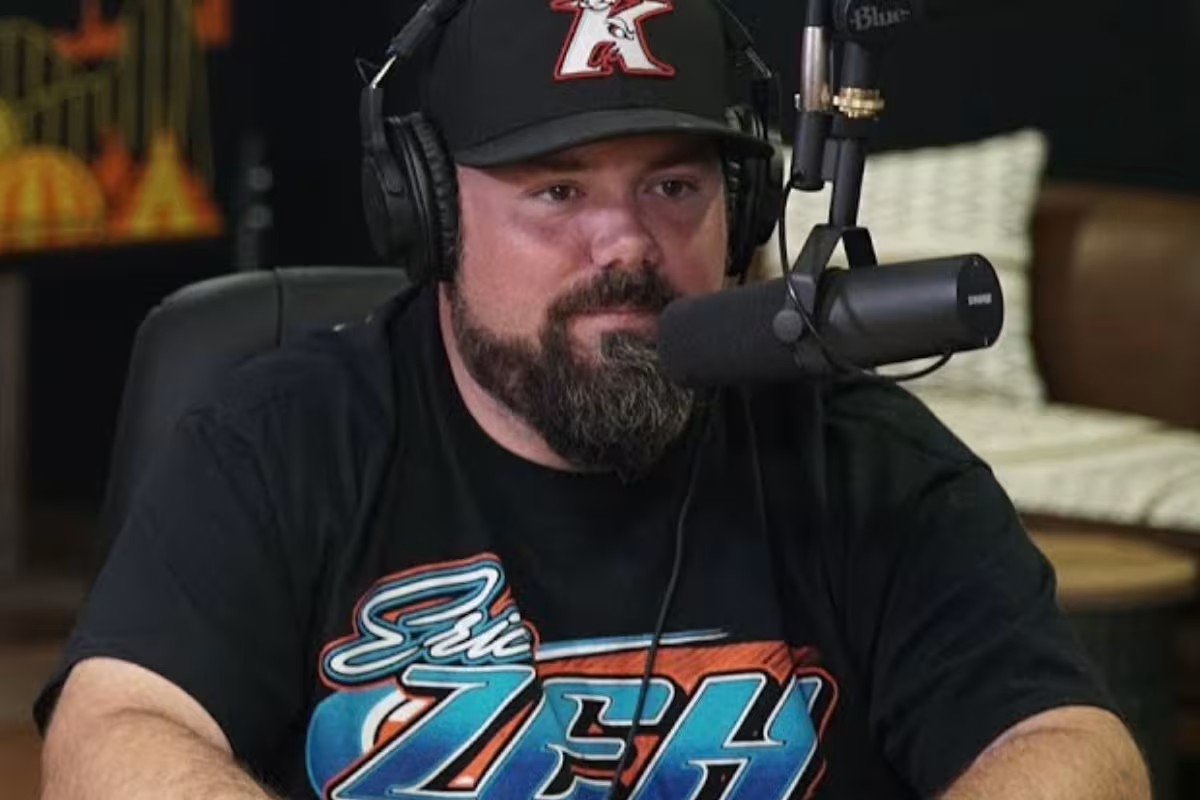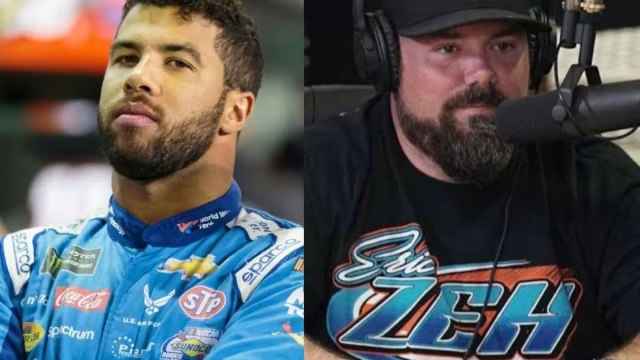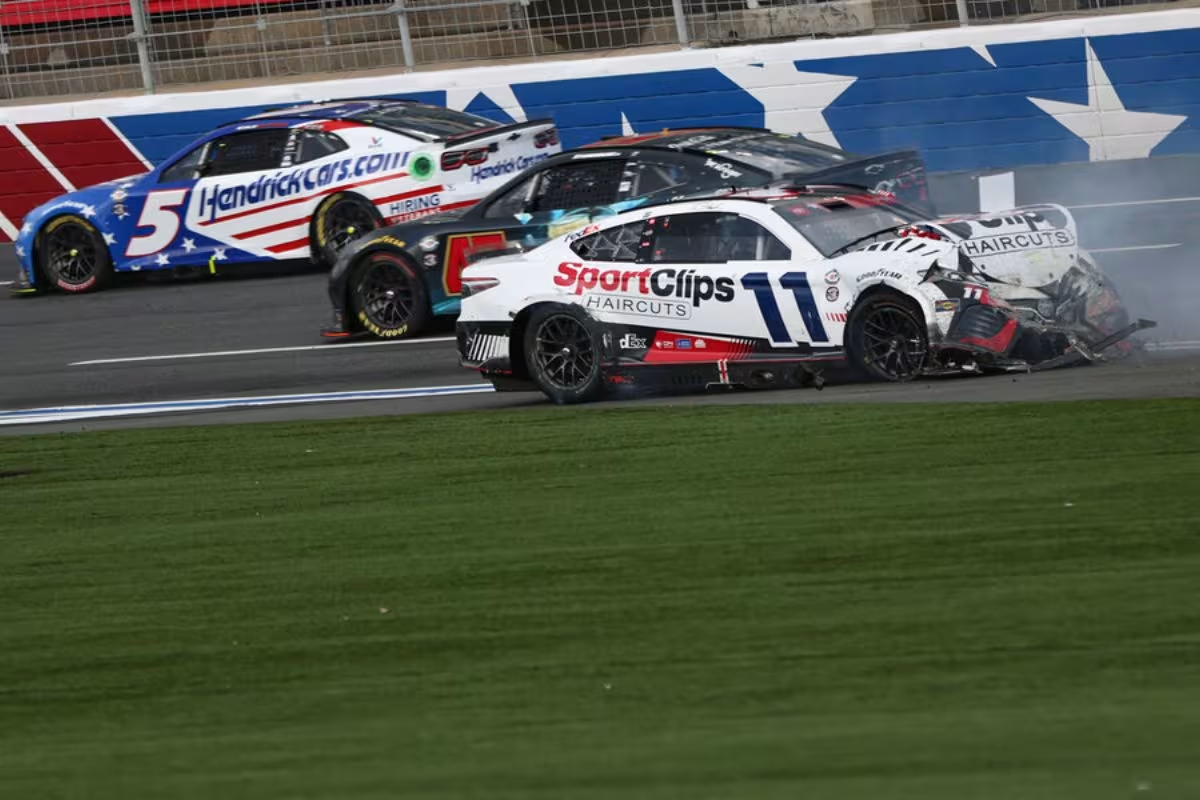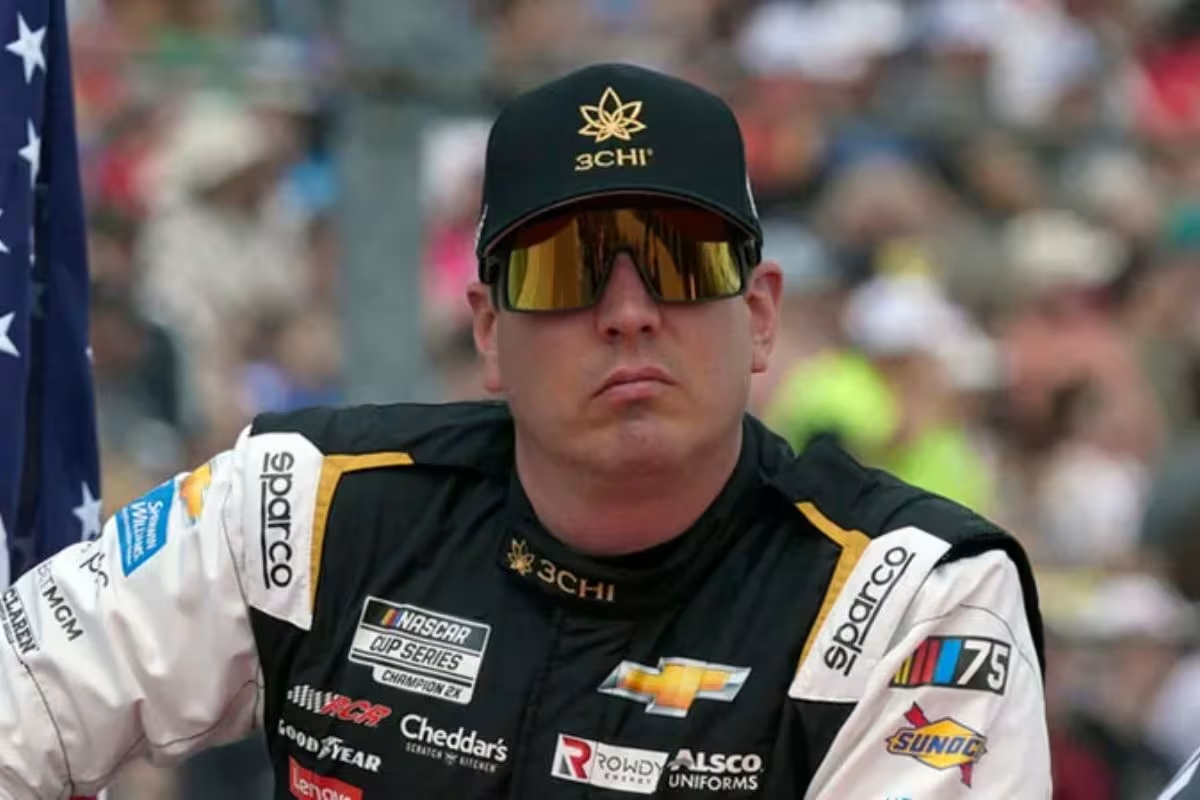Bubba Wallace’s Spotter Calls Out NASCAR Drivers: Freddie Kraft’s recent critique of NASCAR drivers exposes a troubling dichotomy within the sport: the tension between reckless ambition and genuine sportsmanship. By highlighting the seemingly contradictory behavior of drivers like Chase Briscoe and Austin Hill, who lament caution-related incidents while simultaneously benefitting from aggressive racing tactics, Kraft emphasizes a critical need for authenticity in driver narratives. This revelation raises questions about accountability and invites a deeper examination of the broader implications for competitive integrity in NASCAR.
Key Highlights
- Freddie Kraft criticized drivers for expressing regret after causing cautions while still employing aggressive tactics during races.
- He highlighted the hypocrisy in drivers’ narratives that prioritize their competitive advantage over genuine accountability.
- Kraft called for more transparency in driver communications regarding their racing decisions and outcomes.
- He emphasized that drivers should embrace their competitive nature without masking their advantages with false regret.
- Kraft’s commentary reflects a broader conversation about the balance between competitiveness and accountability in NASCAR culture.
Overview of Recent Incidents
In recent weeks, the competitive nature of NASCAR has been on full display, revealing a complex interplay between aggression and sportsmanship among drivers. The events at Kansas Speedway serve as a poignant example of this dichotomy, particularly in the incident involving Kyle Busch and Chase Briscoe. With only 32 laps remaining, Busch’s relentless pursuit of positioning led to a maneuver that ultimately resulted in a caution, sparking debate regarding the aggressive tactics that have become increasingly prevalent in the series.
The incident highlights a broader trend within NASCAR, where drivers often tread the fine line between competitive spirit and reckless aggression. While drivers like Briscoe may express regret post-race for their role in incidents, one cannot ignore the underlying motivations that drive these split-second decisions.
Freddie Kraft, Bubba Wallace’s spotter, criticized the actions of drivers who exhibit such contradictory behavior—engaging in aggressive tactics during the race yet lamenting their consequences afterward.
This hypocrisy raises questions about the culture within NASCAR, where aggression is often lauded as a hallmark of competitiveness, yet many drivers seem to wish to distance themselves from the fallout of their actions.
As the sport evolves, it becomes increasingly crucial to examine this duality. Are drivers merely products of a hyper-competitive environment, or do they possess the agency to redefine what it means to be aggressive without sacrificing integrity?
Chase Briscoe’s Perspective
While many drivers may grapple with the consequences of aggressive maneuvers on the track, Chase Briscoe’s perspective sheds light on the complexities inherent in racing. His post-race remarks highlight a vital aspect of the sport: the thin line between aggressive competition and unintended consequences. Briscoe’s assertion that he did not intend to cause disruption emphasizes the frequent misinterpretations that can arise in the heat of competition. He articulated the challenges drivers face when maneuvering tight quarters, emphasizing the delicate balance of handling dynamics that can easily lead to unexpected outcomes.
“I didn’t feel like I did anything. It definitely wasn’t intentional. It was one of those racing things. In this car you get so loose outside of guys. I hate it for them.” – Briscoe

This sentiment echoes the experiences of his peers, such as Austin Hill, who likewise expressed regret over unintentional contact during a race. Hill’s comments reveal a shared understanding among drivers that the nature of racing often necessitates a degree of risk-taking, which can lead to unfortunate incidents. Both Briscoe and Hill advocate for a deeper appreciation of the racing environment, where the line between tactical racing and recklessness can appear blurred.
“I hate it that he got in the fence, I wasn’t trying to run him in the fence; I was just trying to get him aero-tight or get him aero-loose.” – hill

Briscoe’s perspective invites us to reflect on the broader implications of these racing incidents, particularly regarding accountability and perception. Rather than vilifying drivers for aggressive tactics, a more nuanced approach is necessary—one that acknowledges the inherent unpredictability of racing.
Freddie Kraft’s Commentary
Chase Briscoe’s reflections on the complexities of racing have sparked a broader conversation about accountability in the sport, which Freddie Kraft has seized upon to challenge prevailing narratives among drivers. Kraft’s candid critique targets the disingenuous nature of drivers expressing regret over incidents that ultimately benefit their positions in races. By highlighting the inconsistencies in their statements, Kraft calls for a more authentic dialogue within NASCAR.
“One thing I need Chase (Briscoe) to do; and I’ve talked about this across the board with every driver. Stop saying, ‘I hate it’. You don’t hate it. You got the caution you needed, you stayed on the lead lap.” – Kraft
Kraft’s commentary emphasizes a growing frustration with drivers like Briscoe and Austin Hill, who publicly lament incidents that, in reality, play to their advantage. He argues that such statements are not only hypocritical but also diminish the integrity of the sport.
“I think it was Austin Hill like when he ran (Corey) Heim up in the fence…I hate that happened…no you don’t, “You f**king won the race. Stop saying I hate it. You don’t hate it. What happened was what you wanted to happen.” – Kraft
"Stop saying 'I hate it.' You don't hate it—you got the caution you needed." ⚠️ pic.twitter.com/5eP5ZH9rH4
— Dirty Mo Media (@DirtyMoMedia) September 30, 2024
Kraft’s perspective encourages a shift in how drivers articulate their experiences, promoting accountability and transparency. Instead of masking tactical advantages with faux regret, drivers should welcome the competitive nature of racing.

Kyle Busch’s Streak and Briscoe’s Future
Kyle Busch’s remarkable legacy in NASCAR continues to be a topic of intense discussion, especially as he approaches a crucial moment in his career. With 63 victories in the Cup Series, he stands as the most successful active driver and holds unparalleled records in both the Xfinity and Truck Series.
However, the 2024 season has proven challenging, with Busch still seeking his initial win. His close finish at Kansas, where he started in the third position but ended 19th, has brought the spotlight back to the enduring streak of consecutive winning seasons—a streak he has maintained for 19 years. Teammate Chase Briscoe expressed sympathy for Busch, highlighting the friendship and competitive spirit that emphasizes the sport.
“I hate it for him. He has been so close all year long and I am a Kyle Busch fan and wanted to see him win to keep the streak alive. I hate that we are a part of the conversation.” – Briscoe
As Busch navigates this uncharacteristic slump, Briscoe’s own path is on the rise. Securing a playoff spot with a win at Darlington, he is poised for a noteworthy change, moving from Stewart-Haas Racing to Joe Gibbs Racing, where he will take the reins of the No. 19 Toyota next season.
News in Brief: Bubba Wallace’s Spotter Calls Out NASCAR Drivers
The discourse surrounding accountability among NASCAR drivers reveals a notable tension between competitive instincts and ethical conduct. Freddie Kraft’s critique highlights the necessity for drivers to reconcile their aggressive strategies with genuine expressions of regret following on-track incidents. Embracing transparency and authenticity may improve the integrity of the sport, fostering a culture where recklessness is acknowledged while promoting a genuine commitment to sportsmanship. Such a shift could ultimately redefine the relationship between competition and responsibility in NASCAR.
ALSO READ: Denny Hamlin’s Confidence in Bubba Wallace: Contract News After NASCAR Playoff Exit!


